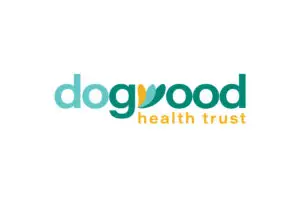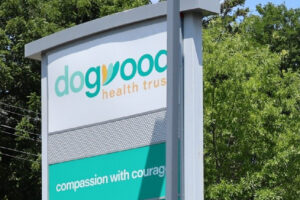Asheville, N.C. – Dogwood Health Trust announced that it is launching a Leverage Fund to help Western North Carolina nonprofits, government agencies or collaborations apply for and receive state or national funding from outside the region to support the work of improving health and wellness within the region. Through the Leverage Fund, Dogwood Health Trust underwrites the services of professional, experienced grant writers to help individual organizations or collaboratives pursue funding from public and private sources at national and state levels. The Leverage Fund helps match nonprofits with the right grant writer, and supports other costs associated with preparing a grant application, such as travel stipends or meeting costs.
Assistance from the Leverage Fund is available to 501(c)(3) nonprofits, local or regional government agencies, and collaborations between or among these organizations. The Leverage Fund supports efforts to apply for $100,000 or more that will ultimately improve health outcomes for residents of the region.
“There are billions of dollars available from federal and state funds, as well as from large national foundations. However, Western North Carolina has often been overlooked or underrepresented when it comes to attracting those funds to our region,” said Antony Chiang, chief executive officer of Dogwood Health Trust. “We believe WNC is home to a host of creative, innovative problem-solvers whose daily demands make it difficult to pay attention to national funding opportunities. Further, securing national grants can be a complex and cumbersome process. The Leverage Fund will provide organizations and collaborations in our region with the capacity and technical assistance to overcome those barriers.”
To provide more information on the Leverage Fund, Dogwood Health Trust will be cosponsoring informational community meetings across the region and hosting a webinar on Nov. 20. As more meetings are scheduled, dates and times will be shared via website updates and email announcements. A current listing of events is as follows:
Transylvania County Public Library, Nov. 8 at 10am: cohosted by Pisgah Health Foundation. Details and RSVP by emailing [email protected].
WNC Webinar, Nov. 20 at 1pm: hosted by Dogwood Health Trust. Details and RSVP by emailing [email protected].
Clay County DSS, Dec. 6 at 2pm: cohosted by Nantahala Health Foundation. Details and RSVP by emailing [email protected].
Dogwood Health Trust encourages individual nonprofits, government agencies and collaboratives to work with the Leverage Fund. There is no application or deadline to receive support. Interested organizations are encouraged to attend one of the upcoming community meetings, watch a live webinar scheduled for Nov. 20, and reach out via email with questions or interest to [email protected]. Dogwood Health Trust is a North Carolina nonprofit corporation with the sole purpose of dramatically improving the health and well-being of all people and communities of Western North Carolina. Dogwood Health Trust became operational upon the sale of Mission Health’s assets to HCA Healthcare and is the recipient of the net proceeds of the sale. To learn more, please visit www.dht.org.





